The Role of Sound Effects in the Success of Arcade Games
14 April 2025
Have you ever walked into an arcade and been hit by a wave of sounds that instantly get your adrenaline pumping? The beeping of high scores, the zapping of lasers, the crash of cars racing across virtual tracks—all these sounds don’t just fill the air; they define the arcade experience. Sound effects are like the secret sauce of arcade games, amplifying emotions, immersing players, and—let’s be honest—sometimes making us keep popping in quarters just for that satisfying "ding" when we win.
But have you ever stopped and wondered why sound effects play such a big role in the success of arcade games? This isn't just some happy accident. Game developers have been mastering the art of audio design for decades to craft unforgettable experiences. Let’s dive into why sound effects are so crucial, how they influence our emotions, and why they’re much more than just background noise. 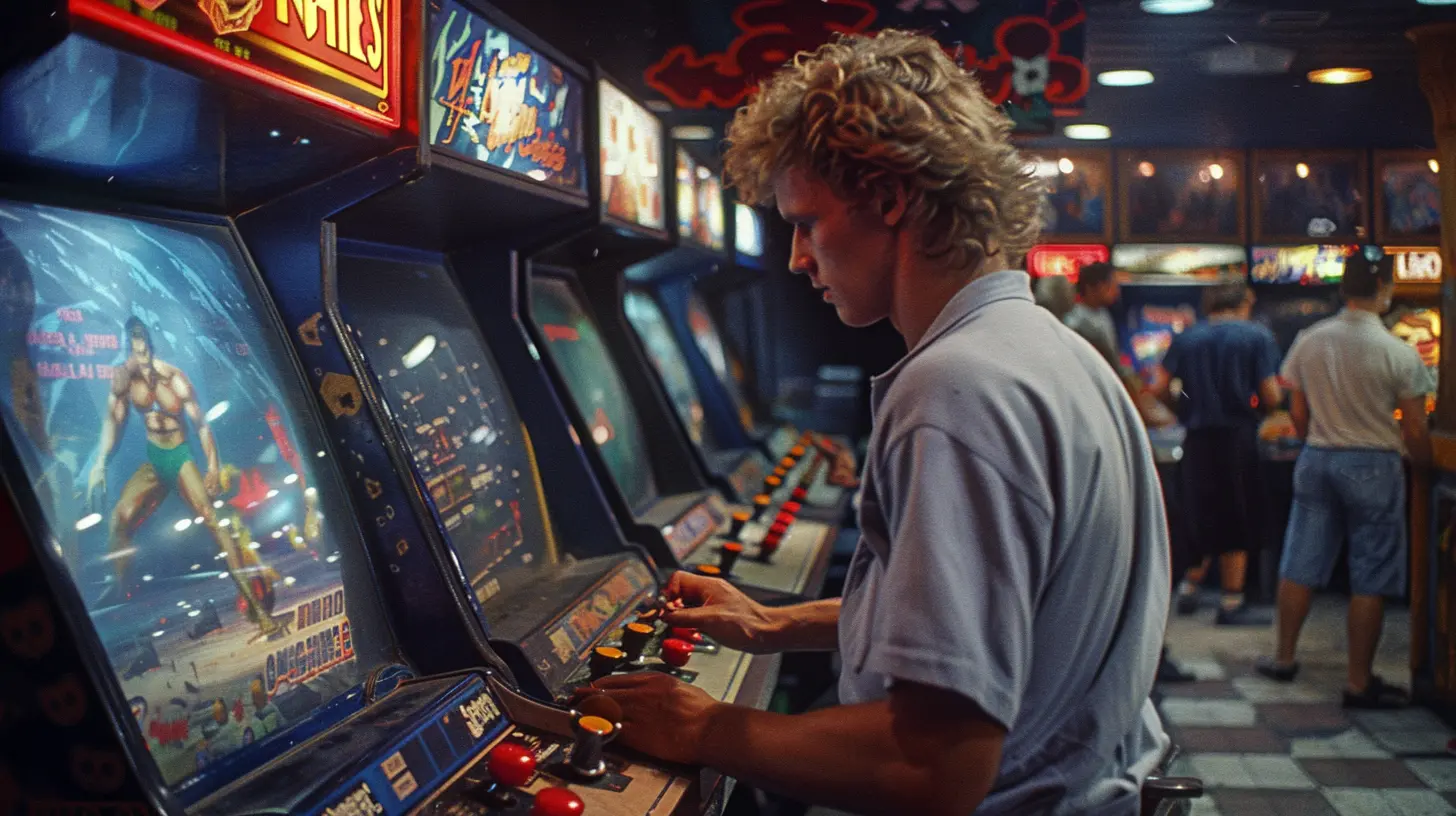
The Science Behind Sound Effects
First things first: sound is tied directly to our emotions. Think about it—have you ever felt goosebumps during an epic movie scene because of the music or the sound effects? Arcade games tap into the same primal part of our brain. When you hear a rewarding sound in a game, like a "cha-ching" after collecting coins or an explosive "boom" after taking out the bad guys, it triggers a release of dopamine. That's the brain chemical responsible for making us feel good.In fact, studies have shown that audio cues can actually enhance our ability to concentrate and react. It’s like your brain hears a sound effect and says, "Hey, something just happened! Pay attention!" This is why arcade games are so effective at keeping players fully engaged. 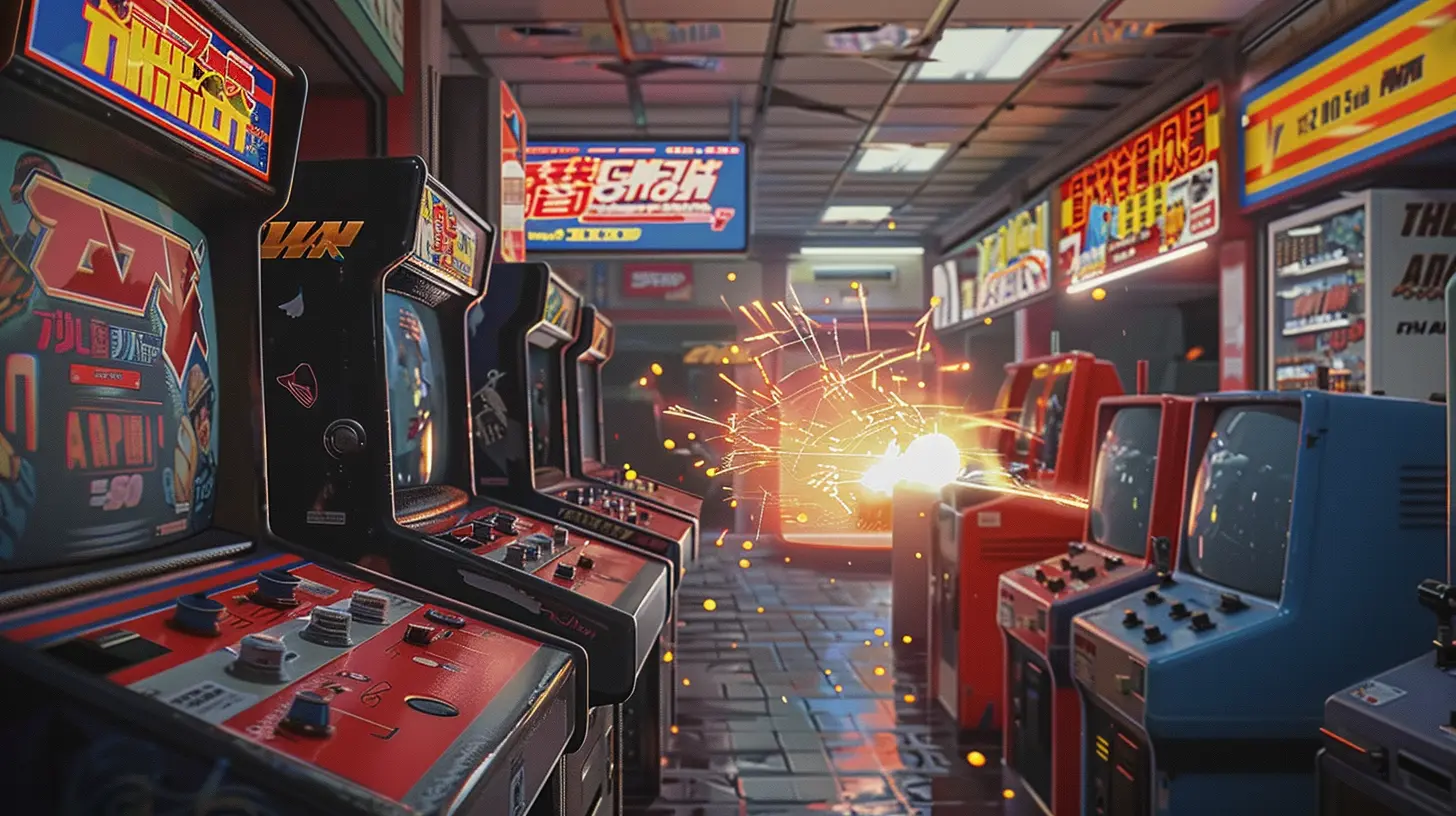
Immersion: Making the Unreal Feel Real
Let’s face it: arcade games are nowhere near "realistic." But you know what makes them feel real? The sound. A car simulator game feels more authentic when you hear the roar of an engine, the screeching of tires, and the crash when you mess up. Without these sounds, the experience would feel flat, like watching a muted movie.Sound effects are the glue that connects the visuals to our perception of reality. When a fighter in a game lands a punch, the crunching sound effect makes it feel impactful. Without it? Meh. It's just two characters awkwardly flailing their arms.
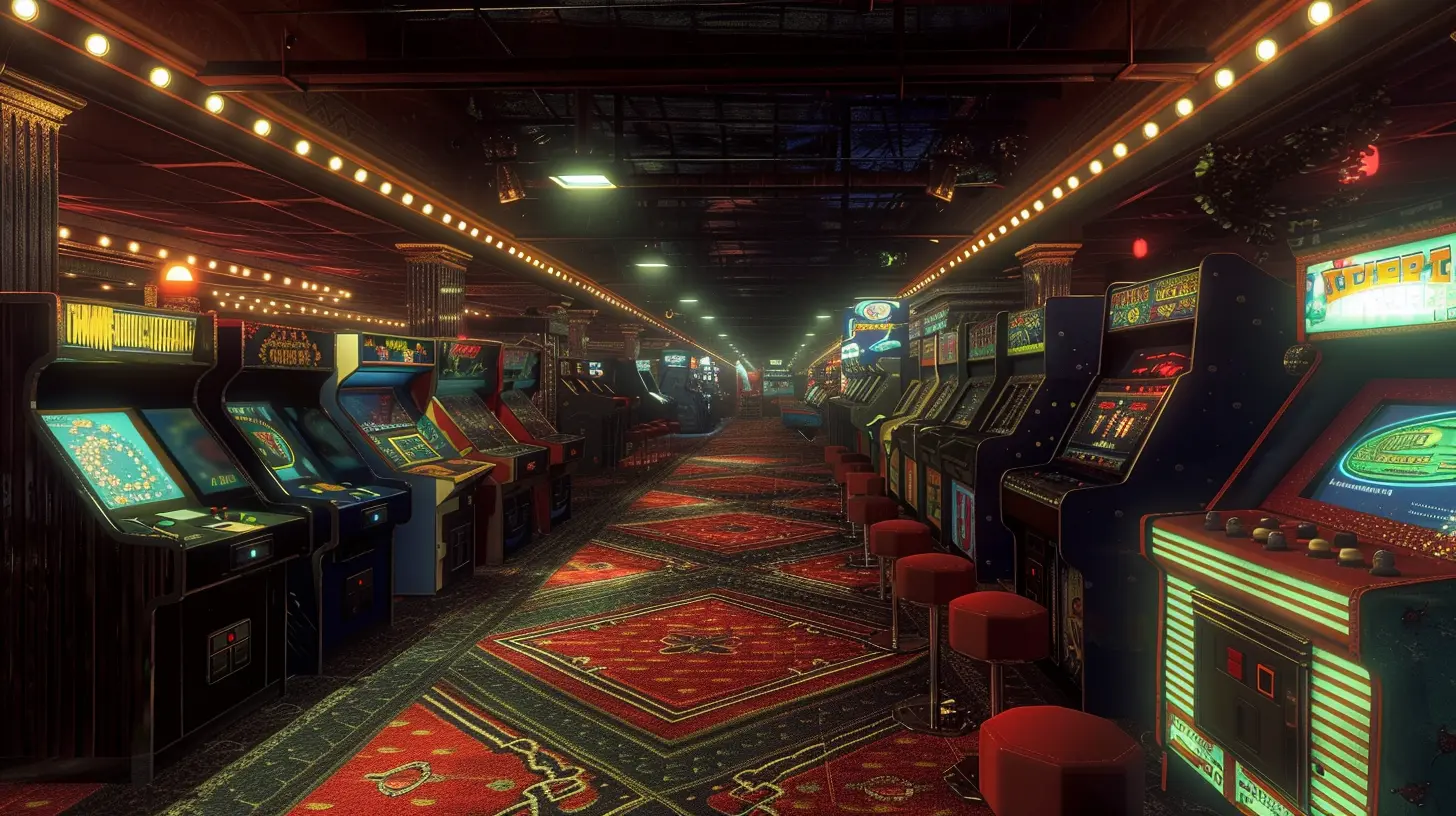
Emotional Connection: The Secret Weapon
Here's the deal: sound effects aren’t just about creating realism. They’re about creating emotion. Think of the triumphant sound when you achieve a new high score or the dramatic "Game Over" effect when you lose. These sounds tap straight into your feelings.Remember how Pac-Man makes that distinct "wakka wakka" sound while he chomps on dots? That quirky noise gives the game its personality. Or think about Space Invaders—the escalating tempo of the alien march is enough to make your palms sweaty as you frantically try to save the Earth. Sound effects are the emotional push and pull that keep you glued to the machine. 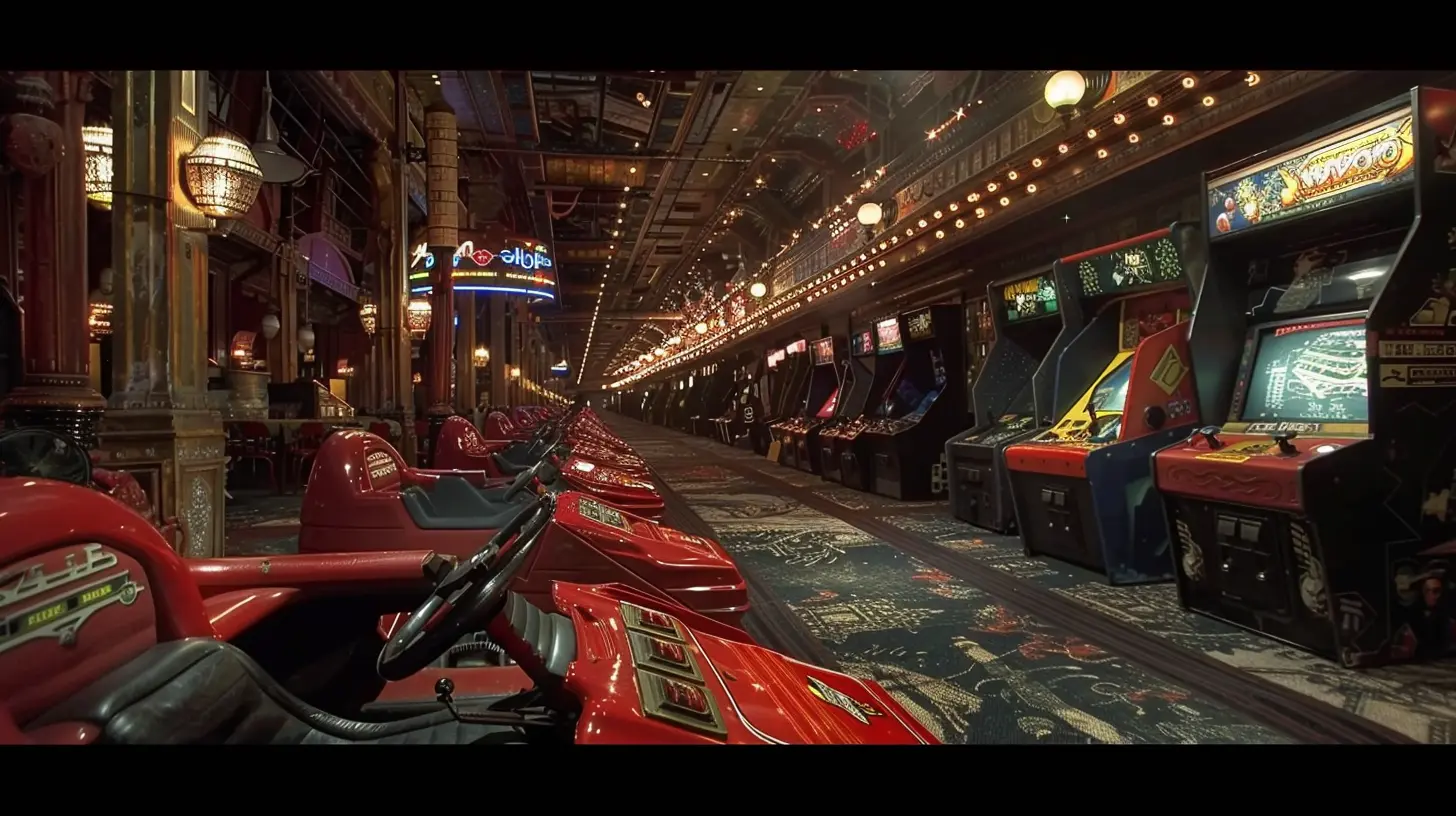
Feedback Loops: Guiding the Player’s Journey
One overlooked role of sound in arcade games is how it provides feedback. Imagine playing without any audio cues—how would you know if an action you performed was successful?Audio feedback is like a teacher giving you instant grades. Did you hit the target? The sound effect confirms it. Did you mess up? There’s an auditory "oops" to let you know. This constant feedback helps players navigate the game’s mechanics without overloading the screen with visual clutter.
For instance, in classic pinball games, the dings and chimes let you know every time you rack up points. In fighting games, each slap, jab, and kick has its own sound to give you precise feedback on what’s happening. This kind of audio communication is what keeps players engaged and learning, even when they’re losing.
Nostalgia: The Soundtrack of a Generation
Let’s talk about the feels for a second. If you grew up in the golden era of arcade games, chances are certain sound effects can instantly transport you back in time. The opening theme of Street Fighter II, the coin-drop sound, or even the simple "start game" chime—it’s like a time machine for your ears.Sound effects are tied to nostalgia, and nostalgia is a powerful emotion. Game developers know this and often build iconic soundscapes that stick with us long after we’ve left the arcade. Heck, some people even throw those sounds into their ringtones or notifications today because they’ve become a cultural staple.
Competition and Bragging Rights
Admit it—there’s a certain thrill in hearing your name announced with a "high score" melody while others watch in awe. Arcade games created a culture of friendly (and not-so-friendly) competition, and sound effects played a key role in hyping up those moments.Remember the thundering applause effect in games like Donkey Kong when you finally reached the top of the leaderboard? Or how about the trumpet fanfare in Mario Kart after finishing first? These sounds rub it in just enough to remind everyone around who’s boss.
The Evolution of Sound Effects in Arcade Games
Let’s take a quick stroll down memory lane. In the early days of arcade gaming, sound effects were basic. We're talking about 8-bit beeps, bloops, and pings. But even back then, those simple sounds had a magical way of pulling you into the game.As hardware got better, so did the audio. By the time we hit the 80s and 90s, sound effects were richer, punchier, and more immersive. Game devs could layer audio to create complex environments—like the hustle and bustle of a city in Cruis’n USA or the eerie alien atmosphere in Galaga.
Today, even though arcades aren’t as crowded as they used to be, their legacy lives on in modern gaming. Sound effects from arcade classics have become part of pop culture, and their influence can be seen (or rather heard) in everything from mobile games to console blockbusters.
Modern Impacts: Arcade Sounds in Contemporary Gaming
Believe it or not, the legacy of arcade game sound effects has shaped the gaming industry as a whole. Many mobile games use short, repetitive audio cues originally inspired by arcade classics to evoke the same addicting nature.Think about games like Flappy Bird or Candy Crush. Don’t the sound effects feel a little… nostalgic? That’s not a coincidence. Developers use sound to tap into the same feedback loops that made arcade games so successful.
Why Sound Effects Elevate Replayability
One thing arcade games had to nail was replayability. After all, they thrived on players coming back for another round. And you know what kept us coming back? Those sweet, sweet sound effects.The sound of coins clinking, the laser pew-pews—it all created an audio environment that was impossible to resist. Even after losing, you’d stick around because the sounds made failure feel fun. How many modern games can say the same?
Final Thoughts
Sound effects in arcade games are so much more than noise. They’re the rhythm of the game, the emotional undertow, and the cheerleader pushing you to play one more round. Without them, arcade games would be just flashing lights and pixels. But with them? They’re unforgettable.Next time you find yourself in an arcade—or even playing a retro game on an emulator—take a moment to close your eyes and just listen. Those sound effects aren’t just random—they’re carefully crafted pieces of art designed to immerse, excite, and keep you coming back for more.
all images in this post were generated using AI tools
Category:
Arcade GamesAuthor:

Greyson McVeigh
Discussion
rate this article
5 comments
Natalia Vaughn
Sound effects are crucial in arcade games, enhancing immersion and player engagement. They create memorable moments, signal actions, and evoke emotions, significantly contributing to the overall gaming experience and success.
May 11, 2025 at 5:01 PM

Greyson McVeigh
Thank you for highlighting the importance of sound effects! They truly play a vital role in enhancing immersion and creating memorable experiences in arcade gaming.
Romina Whitaker
Sound effects in arcade games not only enhance immersion but also evoke nostalgia, creating a powerful emotional connection. They guide player actions, reinforce gameplay mechanics, and ultimately contribute significantly to a game's overall enjoyment and success.
April 28, 2025 at 4:04 PM

Greyson McVeigh
Thank you for your insightful comment! I completely agree that sound effects play a crucial role in enhancing immersion and evoking nostalgia, which ultimately enriches the player experience and contributes to a game's success.
Asher Kirkpatrick
Sound effects enhance player immersion and engagement, crucial for the overall success of arcade games.
April 18, 2025 at 3:14 AM

Greyson McVeigh
Absolutely! Sound effects play a vital role in creating an immersive experience, significantly boosting player engagement and contributing to the overall success of arcade games.
Margaret McCarron
This article raises fascinating points about sound effects! I'm curious—how do specific sounds influence player behavior and game immersion? Do iconic soundscapes from classic arcade games still resonate with players today, or has the gaming landscape evolved too much?
April 17, 2025 at 3:26 PM

Greyson McVeigh
Thank you for your comment! Specific sounds can evoke emotions and trigger memories, enhancing immersion and influencing player behavior. While the gaming landscape has evolved, iconic soundscapes from classic arcade games still resonate with many players today, serving as nostalgic touchstones that connect them to the past.
Paxton Lawson
Sound effects in arcade games aren’t just background noise; they’re the heartbeat of the experience. From triumphant chimes to heartbreaking bleeps, these auditory cues craft our emotional journey, proving that in gaming, every pixel has a sound—and every sound tells a story.
April 16, 2025 at 3:57 AM

Greyson McVeigh
Absolutely! Sound effects are essential in arcade games, enhancing immersion and emotional engagement through carefully crafted audio cues. They truly elevate the gaming experience.
MORE POSTS
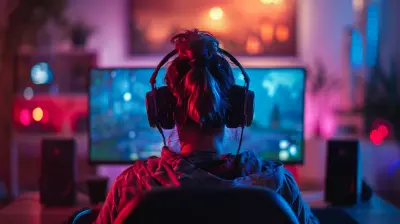
Accessible Game Development: Designing Games for Everyone

The Psychology Behind Microtransactions: Why Do We Keep Buying?

Interconnected Worlds: Designing Multiverse Settings in Games

Journey of the Hero: A Breakdown of the Best Character Progression Systems

Creating Dynamic Political Systems in Game Worlds